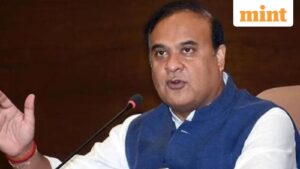Japan’s Prime Minister Sanae Takaichi reported that she engaged in a conversation with U.S. President Donald Trump at his request, during which he briefed her on his recent phone call with Chinese President Xi Jinping and the current state of U.S.-China relations.
The discussion between Trump and Takaichi occurred amid ongoing tensions between Japan and China following Takaichi’s remarks regarding Taiwan earlier this month. Takaichi indicated that the two leaders reiterated the importance of the U.S.-Japan alliance. In response to a query from a reporter about Taiwan, Trump elaborated on his conversation with Xi.
Takaichi stated, “We’ve been able to further confirm the close relationship between the U.S. and Japan following President Trump’s recent visit to Japan. He told me I’m a very close friend and that I could call him any time.”
The exchange of calls transpired as Japan and China react to Takaichi’s November 7 comments, in which she suggested that if China attempted to take control of Taiwan, it could pose a “survival-threatening situation” for Japan, potentially justifying military cooperation with other nations. While the economic repercussions have been limited thus far, China has advised its citizens against travel to Japan and urged caution for students already in the country.
This week, Japan addressed a letter to the United Nations critiquing a prior communication from China, which Japan claimed misrepresented Takaichi’s statements about Taiwan. The letter described Beijing’s assertions as “inconsistent with the facts and unsubstantiated.”
Japanese Ambassador to the UN Kazuyuki Yamazaki wrote to UN Secretary-General Antonio Guterres, asserting, “China’s assertion that Japan would exercise the right of self-defense even in the absence of an armed attack is erroneous.”
Trump and Xi’s initial discussions on Monday followed an agreed-upon tariff truce last month. They addressed issues such as trade, Taiwan, and Russia’s ongoing invasion of Ukraine. Trump confirmed plans to visit Beijing in April and extended an invitation to Xi for a state visit next year. Takaichi also mentioned sharing her perspectives on U.S. efforts towards achieving peace in Ukraine.
Polling data indicates that Takaichi’s approval ratings have remained high in the wake of her exchanges with China. Surveys show that over half of respondents support her comments on Taiwan. According to separate surveys by Yomiuri and FNN/Sankei, her cabinet’s approval rating stands at 72% and 75%, respectively, while a Mainichi poll recorded support at 65%. These figures are significantly higher than the approval ratings for her predecessor, Shigeru Ishiba.
In the Yomiuri survey, 56% of respondents viewed her stance on China positively, while in the FNN/Sankei poll, 61% considered her remarks on Taiwan appropriate. A Mainichi survey revealed that half of those questioned found no issues with her comments.
Takaichi concluded, “We’ve broadly discussed strengthening the U.S.-Japan alliance and the situations and issues that the Indo-Pacific region faces. Within that discussion, President Trump explained the latest state of the U.S.-China relationship, including his phone call with the Chinese leader.”
This article was generated from an automated news agency feed without modifications to text.










